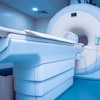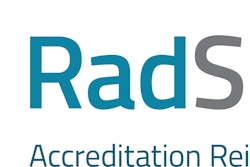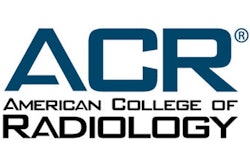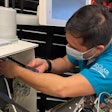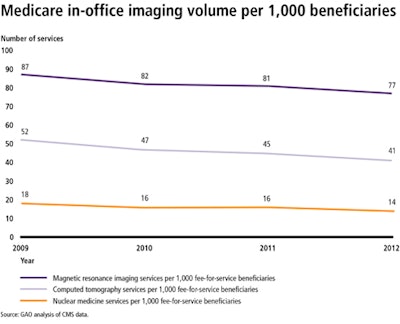
The U.S. Government Accountability Office (GAO) has released a report to the U.S. Department of Health and Human Services and various congressional committees outlining the impact that Medicare imaging accreditation has had on access to advanced diagnostic imaging. The bottom line? It's not clear.
The report follows implementation of the Medicare Improvements for Patients and Providers Act of 2008 (MIPPA), which required that beginning January 1, 2012, suppliers of the technical component of advanced diagnostic imaging (ADI) services (CT, MRI, and nuclear medicine, including PET) be accredited to receive Medicare payment for these services. The U.S. Centers for Medicare and Medicaid Services (CMS) administers and oversees the MIPPA accreditation requirement; it chose four organizations to serve as accrediting organizations, including the American College of Radiology (ACR), the Intersocietal Accreditation Commission (IAC), the Joint Commission, and RadSite.
One of the major concerns about the requirement has been that it could disrupt Medicare beneficiaries' access to these services if some imaging services providers are unwilling or unable to become accredited, according to the GAO.
The report did find that the number of advanced diagnostic imaging services provided to Medicare beneficiaries in the office setting began declining before and continued declining after the accreditation requirement began. But whether this decline is solely attributable to the accreditation requirement is unclear, the GAO said.
In particular, advanced imaging use tapered off at the same time that public and private policies designed to slow imaging utilization and spending -- such as Medicare payment reductions, prior authorization policies, and radiation dose awareness -- were ramping up.
For example, the number of fee-for-service CT procedures performed per 1,000 Medicare beneficiaries declined by 9% from 2009 to 2010, 4% from 2010 to 2011, and 9% from 2011 to 2012.
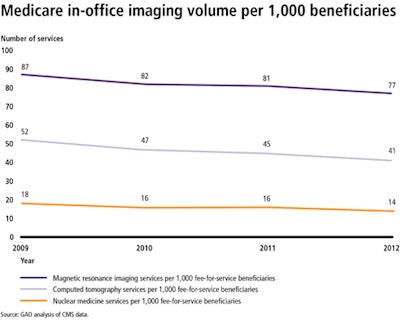
"[The findings] suggest that the overall decline was driven, at least in part, by factors other than accreditation," the GAO wrote.
However, even if the effect of the accreditation requirement on access to advanced imaging in the office setting is murky, accrediting organizations and accredited advanced imaging suppliers said that any effect on access was likely limited, according to the GAO.
"Specifically, CMS officials overseeing the accreditation requirement reported that they were not aware of any access-to-care issues resulting from the accreditation requirement and noted that there had been no beneficiary complaints regarding a lack of access to ADI services since the requirement went into effect," the report stated.
The report is available at the GAO's website.




